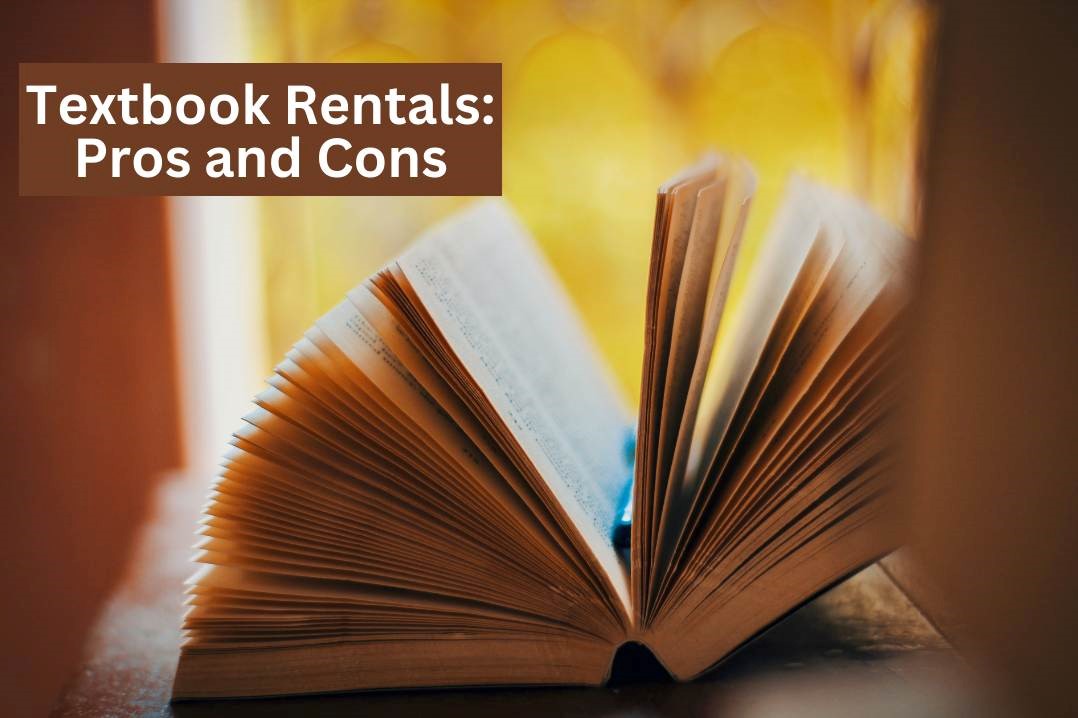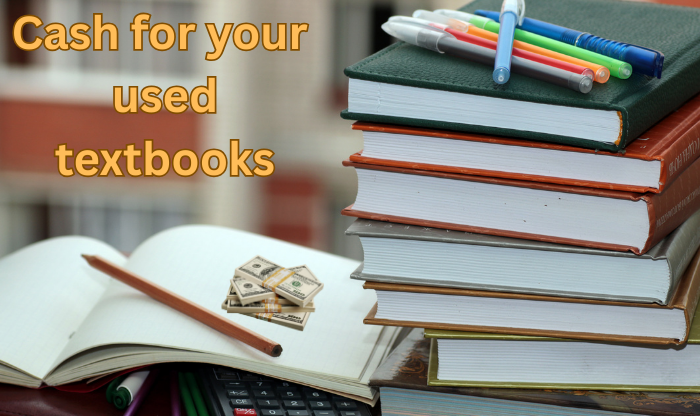Ready to turn those old books into quick cash? Discover five expert tips to turbocharge your used book sales and maximize your profits. Say goodbye to clutter and hello to extra money in your pocket!"
Are you looking to sell a stack of used books? Whether you're decluttering your home or trying to make some extra money, selling used books can be a great way to do both.
In this article, we'll share five tips on how to sell a lot of used books fast. By following these tips, you can get your books sold and out of your house in no time!
5 Tips For Selling a Lot of Used Books
Offer Your Books for Sale at a Yard Sale
One of the simplest ways to sell your books is by having a traditional yard sale. This works well if you're looking to get rid of various items like furniture and toys, and your neighborhood gets a lot of visitors. Books, in particular, catch the attention of even casual yard sale browsers.
Instead of rushing to set things up outside, it's a good idea to plan ahead for a few days. Let your neighbors know about your upcoming yard sale and invite them to come by. If your neighbors also host yard sales on the same day, it can attract more people.
Arrange books on bookshelves or with their spines facing up in shallow boxes. Show off interesting or popular books by displaying their covers. Some folks place books on a blanket with the covers facing up, especially on a slope. Sort hardcovers and paperbacks separately, grouping them by price. If you're using a garage for your sale, avoid displaying books there, as garages can sometimes be damp and musty. Unpleasant smells might make buyers think the books weren't well taken care of.
Sell Your Books Online Platform
Rather than opting for a yard sale, some individuals find selling their used books online to be more convenient (you can give both approaches a shot if you like). While online selling requires less initial planning and physical setup, remember that shipping will be necessary. You'll likely want to request the buyer to handle the shipping cost, which will increase their total expenses.
Prominent websites like windsorbooks.com, Amazon.com, and SellBackYourBook offer popular platforms for selling used books, but there are other options too. It's crucial to provide accurate information about the book's condition. Conditions span from "new" to "poor," with descriptions like "like new" and "acceptable" falling in between. Striking a balance is important – you wouldn't want to discourage potential buyers by making the book sound worse than it is, nor do you want to compromise your reputation by overestimating its condition. If a disagreement arises, a buyer might file a complaint. If you don't make a sincere effort to address the issue, the website's administrators could potentially suspend your account.
Contemp+late the Option of Donating Your Books
Another thoughtful choice to consider for your books is the act of donating them. This involves giving your books to individuals or organizations in need, allowing your reading treasures to find new homes and bring joy to others. Donating books can be a meaningful way to share knowledge, stories, and enjoyment with those who might not have easy access to reading materials.
Local libraries, schools, community centers, and charitable organizations often welcome book donations. By donating your books, you contribute to education, literacy, and community engagement. It's a gesture that can make a positive impact and create a ripple of positive change.
Before you decide to donate, take a moment to go through your collection and select books that you believe could benefit others. Donation recipients often appreciate books that are in good condition, relevant to different age groups, and cover a variety of topics.
Maintaining Book Condition
Taking care of your books to keep them in good condition is essential. Whether you're a book enthusiast or not, these steps will help you maintain their value:
- Choose the Right Spot: Opt for a cool and dry place to store your books. Humidity can cause mold and damage, so avoid damp areas like basements, attics, or garages. Also, keep them away from direct sunlight, which can fade their colors and text.
- Proper Arrangement: Store your books upright on shelves whenever possible. For larger books like atlases, it's better to lay them flat to avoid bending. If you need to pack them in boxes, ensure a snug fit to prevent rubbing against each other. Place them carefully on top of each other for support.
By following these simple guidelines, you'll ensure that your books remain in great condition, preserving their worth and readability for years to come.
Check Prices in Advance
Unless you're an expert in book appraisal, it's wise to research the value of your books before setting a price. Regret can set in if you realize you sold a book for a low price when it was actually worth much more. Some smart book sellers hunt for hidden gems at yard sales, snapping up underpriced treasures and reselling them at higher prices for profit.
Fortunately, in the digital age, finding market prices for your books is relatively simple. A swift search on windsorbooks.com, Amazon.com or Chambal.com can offer insights into the selling price of a particular used book. Let’s you input the author, title, or ISBN and shows you the lowest prices across various websites.
However, it's important to note the price variations on different websites. Significant price gaps likely indicate lower-priced copies in poor condition or being sold by individuals unaware of their value. Also, check if your copy is a first edition, special edition, or the latest edition, as these often carry higher worth.
If you possess an extensive library, you consider valuable, investing in a professional appraisal might be worthwhile.
Exploring Different Avenues for Selling Books:
Apart from yard sales and online platforms, there are several alternative ways you can consider when it comes to selling your books:
- Local Bookstores: Some independent or secondhand bookstores might be interested in purchasing books from you. Visit or contact these stores to inquire about their buying policies.
- Book Swaps: Participate in book swap events or websites where you can exchange your books for ones you're interested in, providing a new home for your books while acquiring new reading material.
- Flea Markets and Craft Fairs: Set up a booth at local flea markets or craft fairs, where you can attract book enthusiasts looking for unique finds.
- Libraries and Schools: Check with local libraries or schools if they have book sales or accept book donations. Your books might find new readers while supporting educational initiatives.
- Social Media: Utilize social media platforms like Facebook Marketplace, community groups, or dedicated book trading groups to reach a targeted audience interested in purchasing books.
- Consignment Shops: Explore consignment shops that specialize in books or other vintage items. They may be willing to sell your books on your behalf for a percentage of the sale price.
- Ebook Conversion: If you're tech-savvy, you can convert physical books into digital formats and sell them as ebooks through platforms like Amazon Kindle Direct Publishing.
- Online Auctions: Consider selling books through online auction sites, where buyers compete to place the highest bid on your books.
- Book Fairs and Events: Look out for book fairs, author events, or literary festivals in your area where you might have the opportunity to set up a booth and sell your books.
- Themed Markets: If your books cater to a specific niche or interest (e.g., cookbooks, travel guides, art books), consider selling them at markets or events related to that theme.
By exploring these alternative avenues, you can tap into diverse audiences and find unique ways to connect your books with new readers and buyers.
Final Words
Caring for your books is crucial for their lasting value. Proper storage in a cool, dry place prevents damage from mold and fading. Researching prices before selling ensures you don't undervalue your books. Yard sales offer simplicity, while online platforms like windsorbooks.com, Amazon and eBay provide convenience, though accurate descriptions are vital. Donating books is a meaningful option, sharing knowledge and joy with others. Whether selling, preserving, or donating, these choices let your books continue to bring value and enjoyment.
FAQs
Can I store my books in a garage?
While a garage might seem like a convenient storage option, it's important to note that garages can expose books to dampness and musty odors, potentially compromising their condition over time.
Why are accurate book descriptions important for online sales?
Accurate book descriptions are vital in building trust and transparency between you and potential buyers. They help prevent disputes and ensure that buyers receive the books they expect, maintaining your reputation as a trustworthy seller.
Are first editions always more valuable?
While first editions often carry added value, it's important to remember that a book's worth is influenced by a combination of factors, including its condition, rarity, demand, and historical significance.
How can I determine if a book is rare and valuable?
Identifying rare and valuable books involves conducting thorough research. Utilize online databases, seek expert advice, and analyze historical sales data to gain insight into the potential value of your books.
What kind of impact do book donations have on communities?
Book donations go beyond simply decluttering your shelves. By contributing to local libraries, schools, and community centers, you contribute to enhancing education, promoting literacy, and creating shared community spaces for learning and exploration. Your generosity can have a lasting positive effect on the lives of those who benefit from your donations.









